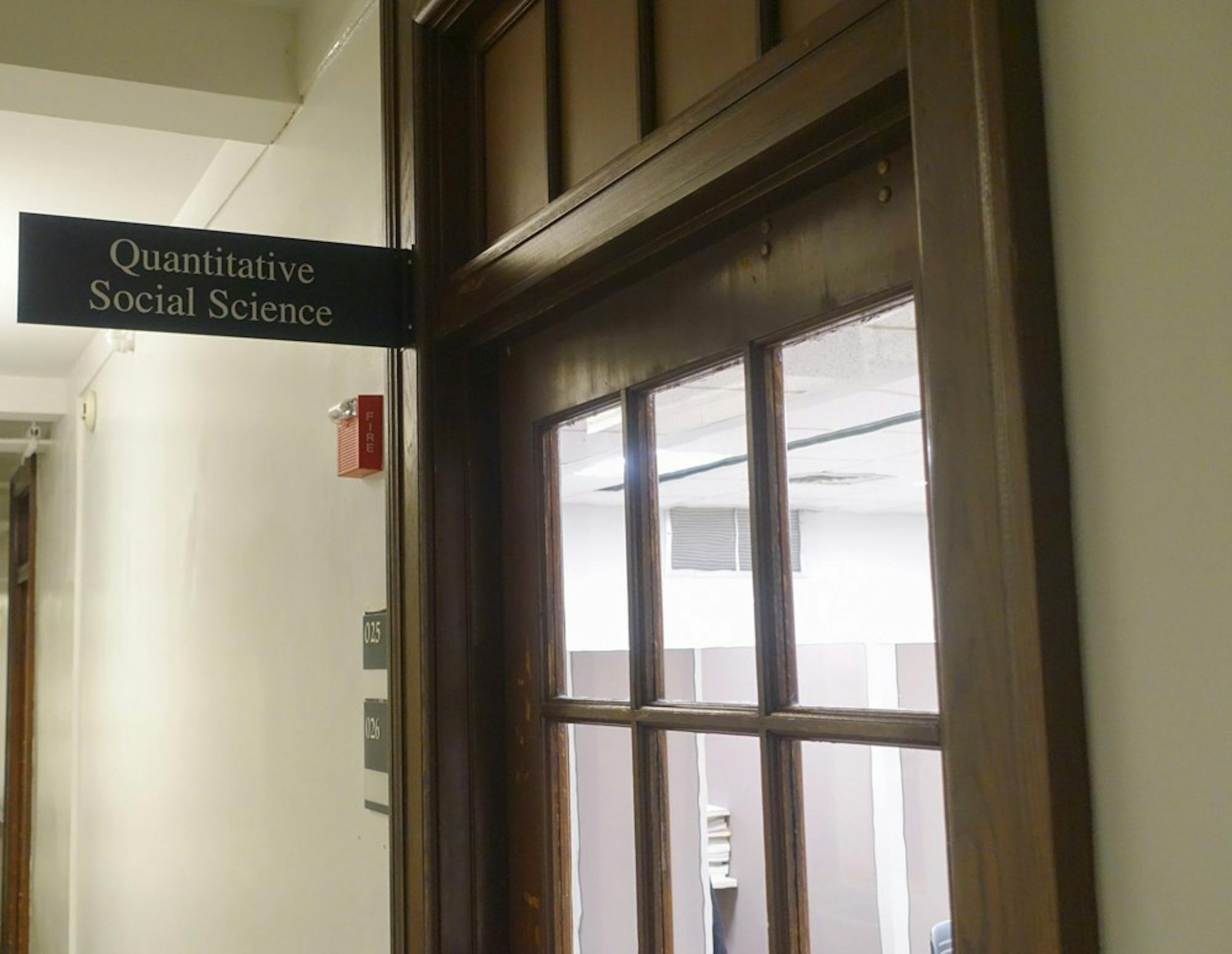There is an increasing number of students majoring in quantitative social science, a subject that teaches students how to apply quantitative tools to social science problems, since the program’s establishment in 2015. While only two QSS majors graduated in 2017, 13 and 25 QSS majors are expected to graduate in 2018 and 2019, respectively, according to QSS program chair and government professor Michael Herron.
In 2015, the QSS program replaced the Mathematical Social Sciences program, which also aimed to instruct students how to apply quantitative analyses to social science questions.
“QSS is built on [MSS’s] foundation,” Herron said. “I would say we’ve modernized [MSS].”
Government professor John Carey, who is a member of the program’s steering committee, said the QSS program attracts students and faculty members from various departments such as sociology, geography and computer science. He added that the program’s interdisciplinary approach to problem-solving is a reflection of the modernization of the MSS major.
Herron added that the QSS program’s interdisciplinary approach makes it a “methods first, substance second program.”
“The boundaries between the disciplines aren’t as strong as they used to be,” Herron said. “Now, there’s a lot of mixing and one of the common threads that brings people together is methods.”
Herron said the increasing popularity of the QSS major can be attributed to the growing importance of data analytics.
“If you look around the world right now, data are becoming increasingly important,” Herron said. “I think the students know that, and we give a good foundation in ways to use data and we teach skills that are very relevant in the modern economy.”
Carey said he was pleasantly surprised at the QSS program’s increasing popularity with students.
“I did not anticipate that the level of student demand is as high as it is,” Carey said.
Carey added that the program teaches students critical skills such as engaging with data that can be applicable to any job.
“In almost any organization, if you are the person that can scrape primary source data off the web, analyze it and make sense of it, you’re going to be valuable,” Carey said.
According to Herron, a key component of the QSS program is research.
“Research is not an optional part of our curriculum,” Herron said. “[The students] are using the skills they learned [in the classroom] to investigate a social science question.”
Government professor Yusaku Horiuchi, who also teaches in the QSS program, echoed Herron’s sentiment, adding that the highlight of the QSS program is the thesis, which every major must complete.
Herron added that every year, the program invites several post-doctoral researchers, who teach classes based on their specialties.
“[Post-doctoral researchers] are new, they’re young — that’s important because the world of statistics and modern methodology is changing very fast,” Herron said. “So it’s really important that newly trained Ph.D.’s are involved in this program.”
Horiuchi said the program fits a wide variety of students with different academic interests.
“[The program can be for] students who are really interested in majoring in sociology, economics, or anything but want to acquire more computational and statistical skills,” Horiuchi said.
Herron said it is too early to determine if the program’s popularity and growth rate will be sustainable in the future.
“We’re thrilled that students are interested,” Herron said.
Kevin Ge is a freshman at Dartmouth College and plans to major in Economics and Computer Science. In his free time, Kevin is active in private and public equity and enjoys high-octane outdoor activities.



